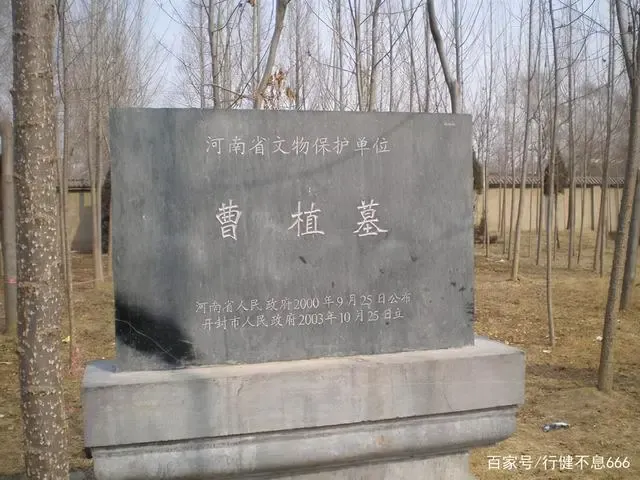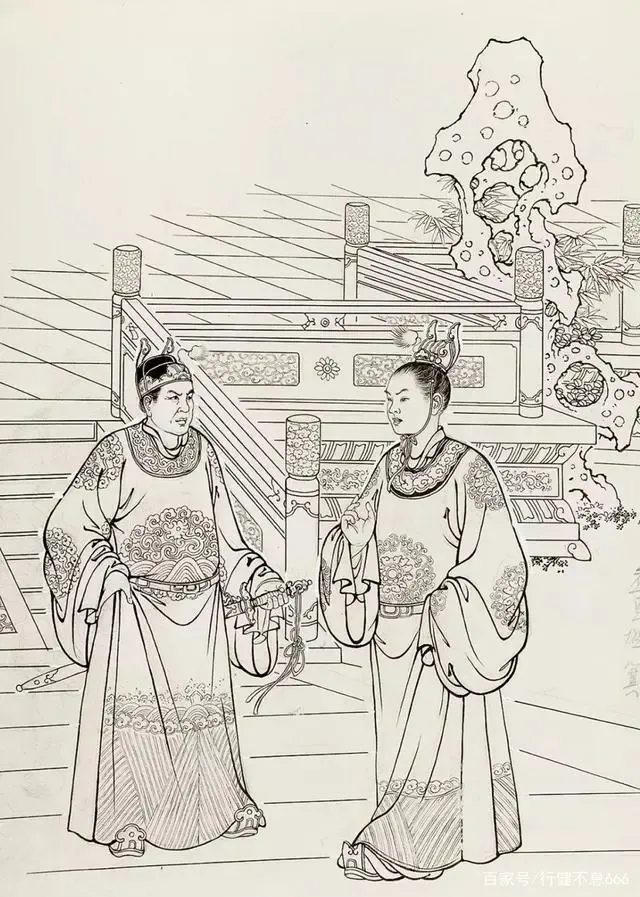
During the Three Kingdoms period, when it came to the issue of enthroning a prince as king, King Cao Cao of Wei favored his third son Cao Zhi. Cao Zhi was intelligent and literary, and wrote extensively, but Cao Zhi was reckless and unrestrained. Eventually, Cao Cao decided to enthrone his second son Cao Pi as the crown prince.
In 220 AD, Cao Pi inherited the throne and established the Wei Dynasty, known as Emperor Wen of Wei in history.
After Cao Pi declared himself emperor, he continued to suppress Cao Zhi. One day, Cao Pi brought Cao Zhi over and said to him, “I heard that your poetry and prose are very good, and I doubt if you have someone to write it for you. Today, I will personally test it and ask you to write a poem about brothers. The word 'brother' cannot appear in the poem, and it must be written within seven steps, otherwise it will be the crime of deceiving the ruler.”
After hearing this, Cao Zhi's eyes were filled with tears and he thought to himself, “He who has a mind to beat his dog will easily find a stick.” As Cao Zhi walked and pondered, before reaching the seventh step, he recited the famous seven step poem with full of sadness and anger:
Pods burned to cook peas,
Peas weep in the pot,
Grown from same root, please,
Why boil us so hot?
The meaning is: beans are boiled in the pot, pods are burning at the bottom of the pot, and beans are crying in the pot. Beans and pods originally grow from the same root, how can the pods so urgently torment the beans!
Cao Pi and Cao Zhi were both sons of Cao Cao. After listening to this poem, Cao Pi was moved by family affection, deeply ashamed, and ultimately let Cao Zhi go.
Later, people used the allusion of “burning pods to boil beans” to metaphorically describe the mutual slaughter between brothers. This story also gave rise to another allusion: "Seven Steps into Poetry", which metaphorically refers to a person's ability to think very quickly.
三国时期,在立太子问题上,魏王曹操看中的是三儿子曹植,曹植聪明且富有文采,下笔成章,但是曹植放浪任性,不拘小节,曹操最终决定立二儿子曹丕为太子。
公元220年,曹丕继承了帝位,建立了魏朝,史称魏文帝。
曹丕称帝后,对曹植一直打压。有一天,曹丕把曹植找来,对他说:“听说你的诗文写得很好,我很怀疑你是否找人代笔。今天我亲自测试一下,我要你以兄弟为题作一首诗,诗中不能出现兄弟二字,而且要在七步之内成诗,不然就是欺君之罪!”
曹植听了之后,眼含着热泪,心想:“真是欲加之罪,何患无辞啊!”曹植一边走,一边思考,还未走到七步,便满腔悲愤地吟出了著名的七步诗:
煮豆燃豆萁,豆在釜中泣。
本是同根生,相煎何太急!
意思是:锅里煮着豆子,豆秸在锅底下燃烧,豆子在锅里面哭泣。豆子和豆秸本来是同一条根上生长出来的,豆秸你怎能这样急迫地煎熬我豆子呢!
曹丕、曹植都是曹操的儿子,是亲兄弟。曹丕听了这首诗之后,被亲情打动,深感惭愧,最终放过了曹植。
后来人们用“煮豆燃萁”这个典故来比喻兄弟之间的互相残杀。这个故事还形成了另外一个典故:七步成诗,比喻一个人才思非常敏捷。

Re🤬eD
Write like the wind
to be free again 🥓
Great thanks.👍